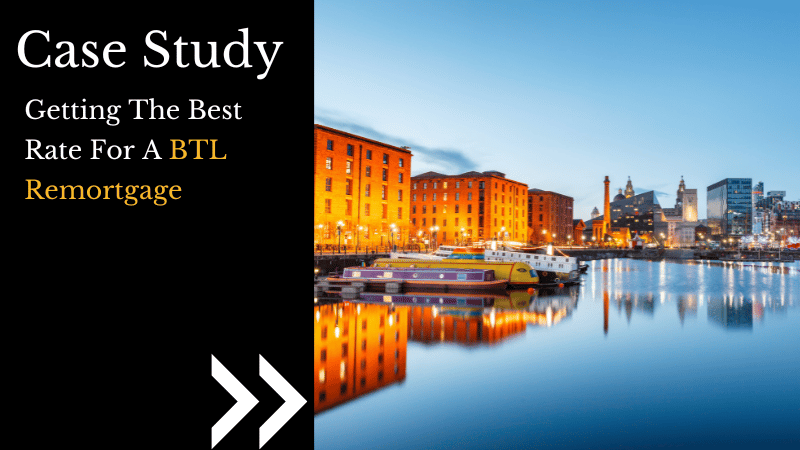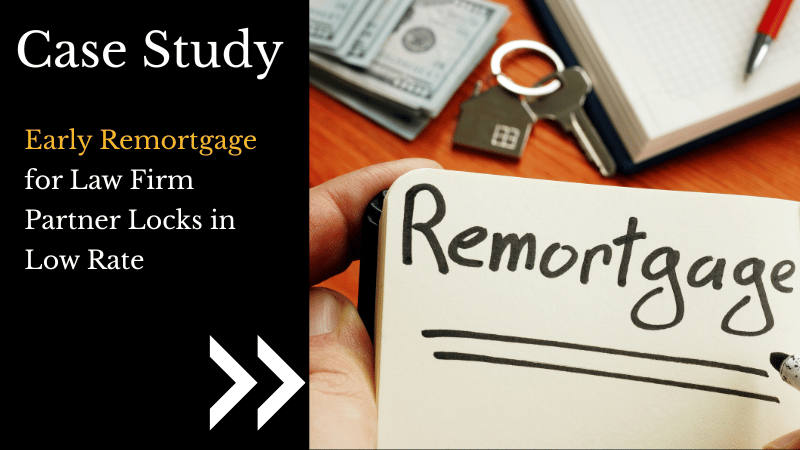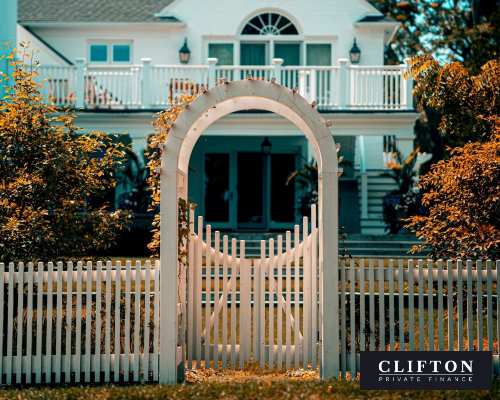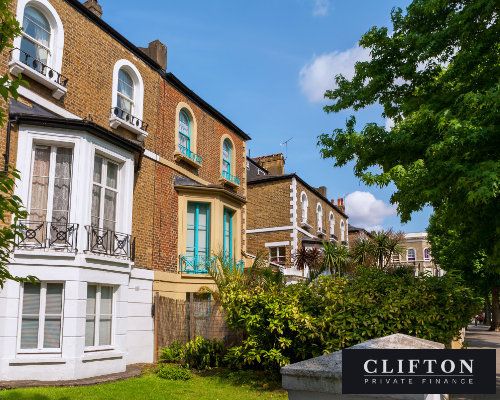Categories
We Buy Any House Services: Pros, Cons, and 5 Alternatives
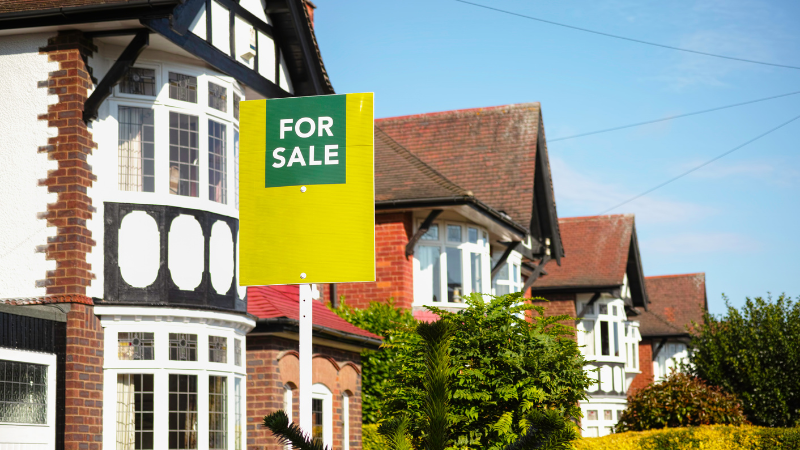
At Clifton Private Finance, we often work with clients who are looking to release the equity in their homes. The simplest way to achieve this is to sell your property outright. We Buy Any House (WBAH) type businesses represent a fast and efficient way to sell your house, offering quick cash in exchange for a discounted price.
You may receive a straightforward and expedient service, but is the tradeoff of a speedy service for a significant loss in value really more efficient and sensible than a remortgage or other types of secured loan against the property?
Alternatives such as bridging finance, remortgaging, second charge loans, or lifetime mortgages can often deliver similar speed, potentially without sacrificing as much value.
Bridging finance, in particular, is designed for quick, short-term funding secured against your property. It can put cash in your hands within days, just like WBAH, but crucially, you keep ownership until you sell, giving you the chance to achieve full market value or even boost it with renovations.
This guide compares WBAH to these financing routes so you can weigh up speed, cost, and long-term benefit before deciding.
And to speak to a property finance specialist about which option could work best for your situation, book a consultation below.
What Is a We Buy Any House Service?
We Buy Any House (WBAH) businesses are investment-based businesses with a clear and uncomplicated model - buy property from people below market value, and then sell it on for a profit. There’s nothing wrong with that - it’s clear, and most of the WBAH services out there aren’t pushy. If you want to sell your home without delay, they’re there for you, and they don’t hide their business model.
There are many WBAH investors in the UK. As a general rule, they offer between 70% and 85% of the market value for your home, depending on the condition, location, and various other criteria.
WBAH businesses make their money by:
- Buying your house at 75% MV - This means obtaining a house worth £400,000 from you at £300,000.
- Potentially renovating the house to increase the value.
- Selling it on.
With the advantage of no time constraints, comfortable financial backing, and a team of industry experts, WBAH companies have all the expertise needed to make a decent profit on their investments.
In exchange, you get to sell your house:
- In a few days - Cash is often released to your account within 3-7 days.
- Without any legal fees - The WBAH businesses cover all fees and costs.
- With minimal fuss - There’s no complicated paperwork, dealing with viewings, worrying about property chains, or any of the other traditional selling a house headaches.
While WBAH isn’t for everyone, there are certainly plenty of people for whom it holds a number of benefits.
Why Use We Buy Any House Services?
Before we look at the alternatives, the obvious question that arises is ‘why do that?’ Why sell your home for less than it’s worth? While it is understandly a difficult decision to make, and far from ideal, there are actually a few valid reasons to do so:
Speed
WBAH is very, very fast. If you don’t have the time to wait months to get your money then it offers an enticing option.
Yes, if you have the means and the patience to play the long game, the chances are you’ll get more. List the house with an estate agent and wait for everything to come to fruition. However, many homes sit on the market literally for years, and during that time many estate agents will come back to you suggesting you drop the price a little. How many such occasions will there be before you realise you’re lowering the price close to the original WBAH offer? Maybe it was worth taking at the outset.
Reasons you may be keen to sell at speed include:
- Selling an inherited house.
- Struggling with financial difficulties under the threat of repossession.
- Separating family assets after a divorce.
- Selling a property with sitting tenants.
- Downsizing and wanting to move quickly.
Ease
WBAH is easy. You need minimal paperwork (you will need to prove you legally own the house, for example), and all the complications of multiple viewings, estate agents, and legal dealings are taken care of.
Equally importantly, with the house gone, there’s not the daily worry of whether anyone will take an interest in it and how long you may be stuck unable to move forward with the next stage of your life.
Selling a house can be extremely stressful, and affects some people greatly. In those situations, the ease of WBAH helps offset the financial downside.
Property Condition
Though the price will come down, WBAH companies are true to their word and stand by the ‘any’ part of the statement. They really will buy any house.
If your house is in desperate need of renovation, or even close to falling down, WBAH presents a viable way to release the remaining equity.
Emotional Impact
Sadly, for some people, the house represents an unwanted emotional stake that they simply want gone. While outside advice may suggest holding onto it and looking for a better offer, sometimes the mental health consideration is better served by selling the house on immediately without any need to engage in a lengthy sale process.
Offsetting Inheritance Tax
Inheritance Tax (IHT) will take a chunk of the property value for many homes that are passed on to heirs. While selling at the reduced price asked by WBAH services doesn’t completely remove IHT, it can make the effective loss on the sale somewhat lower, adding to the benefits of selling to WBAH.
Removing Overheads
Sometimes selling the house at 75% MV is a better financial decision than keeping onto it and paying for upkeep, council tax, and other considerations. If the property is hard to sell, and hard to rent, these overheads can mount up while waiting patiently for a better offer.
The Other Options - Releasing Equity Without Selling
With open eyes and a full understanding of the situation, there’s nothing wrong with WBAH services. It offers people in specific situations a clear and well-presented path to get the capital they need out of their property.
However, it is not the only option available.
At Clifton Private Finance, we work with our clients to compare lending options and secure the right specialist finance to give you the capital and flexibility you need and even open up a wider set of paths for the future.
Balancing Continued Ownership vs. Sale
In all the loan alternatives to WBAH, you remain the owner of the property. This is generally seen as a good thing, as you can always sell it later (often when the value has increased), but it’s not always the best choice. Ownership comes with its downsides:
- Ongoing maintenance
- Overheads (such as council tax)
- Property management
If you are no longer wanting to live in the property, which is true for many considering WBAH, then continuing to own your property means you have to either leave it vacant and pay the ongoing costs, or become a landlord in some capacity. While there is profit to be made as a landlord, it is not without its own level of work and difficulty.
1. Bridging Finance
Bridging finance provides powerful funding that can offer much of the same benefits as WBAH. Designed as a short-term funding solution that’s based on an exit strategy rather than monthly repayments, a bridging loan has a similar feel to WBAH, providing immediate capital leveraged against the property.
The key consideration lies in the property’s eventual sale. Bridging finance is repaid upon that sale, along with the interest added. Assuming the house is sold at 100% MV rather than the 75% MV that WBAH offers, then bridging finance is a superior financial option as long as the interest and fees do not exceed that 25% difference.
Bridging finance for this purpose is best understood through example.
Bridging Finance Example #1 - Balancing Interest and Fees
Mary owns a property valued at £400,000 and wishes to raise £250,000 in capital within the next two weeks. As the timescale makes long-term mortgage-based finance impossible, she has two clear options:
- To sell quickly through We Buy Any Home
- To obtain bridging finance secured by the property
She is offered 75% MV within 7 days with WBAH, meeting her target well. Compared to full market value, this option will effectively cost Mary £100,000 (25% MV).
Her bridging finance option is a 65% LTV (loan to value) loan at 0.6% per month for a maximum term of 12 months. This will take 10 days to approve and provide £260,000, also covering her needs in time.
If Mary takes the WBAH, she has no further obligation - the property is sold and she walks away with her funds.
With bridging finance, Mary must put the property on the market, using the proceeds once it is sold to repay the bridging loan. While the administration is more complex, Mary sets it all out in front of her, making the assumption that she will sell the house at full market value within 12 months.
Example Additional costs with bridging
|
Consideration |
Cost |
|
Maximum Interest (12 months at 0.6% per month) |
up to £28,080 |
|
Arrangement fees (2%) |
£5,200 |
|
Broker fee (CPF) |
£495 |
|
Estate agent fee (1.2%) |
£4,800 |
|
Solicitor fee (conveyancing) |
£900 |
|
Total additional costs |
£38,755 |
When her house is eventually sold for £400,000, Mary will need to repay the full loan of £260,000 plus the additional costs, for a total of £298,755. She will receive an additional £98,221.
Mary does realise that the bridging finance option presents additional risk to her - if the property doesn’t sell inside the 12 month window, she may need to refinance the loan at additional cost. Should the property take three years to sell, or if its value decreases in the intervening time, she will be worse off than if she took the WBAH offer.
Get started with our calculator



Get started with our calculator
Bridging Finance Example #2 - Boosting the Property Value
Chris and Jing are looking to release equity in their smallholding. They’re keen to release money quickly as they have a number of debts to clear, family who are looking for help, and the opportunity to downsize into a nearby cottage they’ve loved ever since they moved to the area. Time is an essential factor.
She and Chris have been looking at WBAH to get the money before the cottage is sold (there is already considerable interest in it). She receives an offer for £645,000 (75% MV) and is happy to take it - it will let them beat the cottage asking price of £450,000 and provide them with a solid amount of additional capital.
Because bridging finance is often used for renovations, CPF are able to offer experienced advice and connect Chris and Jing to a specialist bridging lender with expertise in smallholding refurbishment. They are offered a 65% bridging loan secured on the smallholding of £559,000 at 0.64% per month. Chris points out this will also let them buy the cottage, and also give them approximately £100,000 to spend on renovating the smallholding.
Jing agrees. They take the bridging loan rather than the WBAH offer and secure the cottage. The next year is spent living happily in the cottage while overseeing substantial renovations and upgrades to the smallholding. It sells 13 months later for an astonishing £1.35 million.
- Total bridging and sale costs (fees and interest, rounded up): £84,000
- Loan balance: £559,000
- Total repayable (loan plus costs): £643,000
Considering the final sale price of £1,350,000, by choosing the bridging finance and the renovation project, Chris and Jing have over £700,000 in the bank a year later - the WBAH option would have left them with approximately £200,000 at the same time. The bridging finance decision netted the couple £500,000 in additional profit - the best financial decision they ever made.
2. Remortgaging (Residential)
A residential mortgage is the primary form of property-based lending. It is a long-term, full-repayment solution that benefits from low interest rates and low monthly payments. When comparing a remortgage to WBAH, the two main factors are:
- Repayment - A remortgage needs to be repaid. While selling the property results in cash in the bank and no monthly overhead, a remortgage maintains a monthly obligation.
- Credit and affordability checks - If your financial situation is poor, you may be rejected when applying for a mortgage. At CPF, we work with specialist lenders who can help even if you have substantial bad credit, but affordability is an important consideration.
Remortgaging can work well to help consolidate debts and secure a better financial future, especially with the help of an experienced mortgage broker. Call us at Clifton Private Finance and speak to a remortgaging advisor to understand your fuller options.
Get a Free Quote
3. Remortgaging (Buy-to-Let)
Buy-to-Let (BTL) mortgages are suitable for those looking to keep their property and become a landlord. Often structured as an interest-only mortgage, BTL has a low monthly repayment that allows for maximum profit and an ongoing income through rental yield.
Like a residential mortgage, a BTL mortgage is a long-term solution that will mean a monthly obligation to make repayments and will be subject to affordability checks - though these are based more on the rental yield than your personal income and affordability.
Becoming a landlord is a viable option for those who were thinking of selling their property because of a move but who would quite like to keep the original home as an investment.
4. Second Charge Mortgage / Homeowner Loan
A second charge mortgage, also commonly known as a homeowner loan, is an additional loan secured by your property in addition to the existing mortgage. As it doesn’t displace the primary (first charge) mortgage, second charge mortgages are somewhat simpler to apply for and obtain, though they are typically more expensive, with higher rates than a full remortgage.
Second charge mortgages are most often used for home renovations, making them a poor fit to compare to a WBAH option - it is impossible to renovate and sell a house at the same time - however, their secondary use as debt consolidation is very applicable to many people looking at WBAH.
If you are in a poor financial position and looking to leverage your home to pay other debts, then a second charge mortgage may be a versatile alternative to quickly selling your house.
With a second charge mortgage you may be able to service your existing debts without the threat of losing your home.
Our Second Charge Mortgage Case Studies
Get Second Charge Mortgage Quote
5. Lifetime Mortgages
For homeowners aged 55 and older, equity release products offer a final alternative to WBAH. Designed to provide immediate capital for use in retirement, equity release products such as lifetime mortgages and home equity lines of credit (HELOC) unlock the money tied up in your home without needing to sell.
When you use a regulated equity release solution, you receive a loan that has no monthly repayment - instead it is structured such that repayment is due in full if you ever leave the property. While interest is applied to the loan, a no negative equity guarantee exists to ensure that the cost of the repayment can never exceed the value of your home - this protects your heirs from being burdened with a debt.
The range of equity release products are flexible and well-designed to provide you with the money you need as well as security and peace of mind. Some, such as the standard lifetime mortgage, provide a lump sum that you can use at your discretion, while others are drawdown options, allowing you to take the money as and when you need it, and limiting the amount of interest accrued.
If you are over 55 and needing to access the funds tied up in your home, equity release offers a superb alternative to a sale - both traditional and through WBAH. Read our guides to lifetime mortgages in our knowledge base, or speak to a Clifton Private Finance advisor to learn more.
Check Your Eligibility
We Buy Any House Alternatives: Comparison Table
WBAH vs. Alternatives
|
Consideration |
WBAH |
Remortgage |
BTL |
Second Charge |
Bridging Finance |
Lifetime Mortgage |
|
Speed |
FAST! |
Slow |
Slow |
Medium |
Fast |
Medium |
|
Approx equity obtained (% MV) |
75% |
up to 90% |
up to 75% |
up to 90% |
60% - 80% |
up to 65% |
|
Credit checks |
No |
Many |
Many |
Some |
No |
No |
|
Monthly repayments |
No |
Yes |
Yes |
Yes |
No |
No |
|
Sale of property |
Yes |
No |
No |
No |
Yes |
No |
|
Administration |
Very low |
Medium |
Medium |
Medium |
High |
Medium |
|
Best for |
Easy, quick funds |
Long-term ownership |
Property investment |
Debt consolidation |
Quick funds, renovation projects, profit |
Retirement |
Property Finance and We Buy Any Home with Clifton Private Finance
At Clifton Private Finance, we definitely will not buy your home - we’re a premium, whole-of-market finance broker! However, we understand the world of WBAH and the reasons our clients consider using their services.
We’re here for you to discuss your options and determine the best course of action for you to achieve your ends - whether that’s a debt finance option or selling your house to a WBAH business. Contact us today for a free consultation, and let us put you on the right path.
